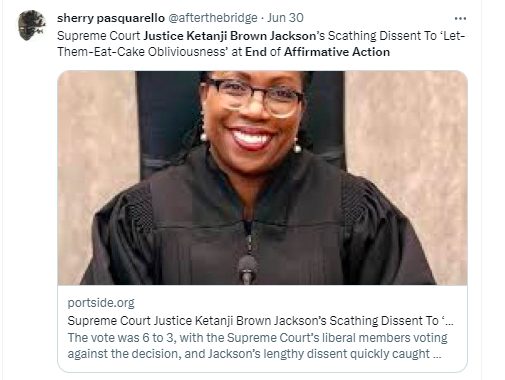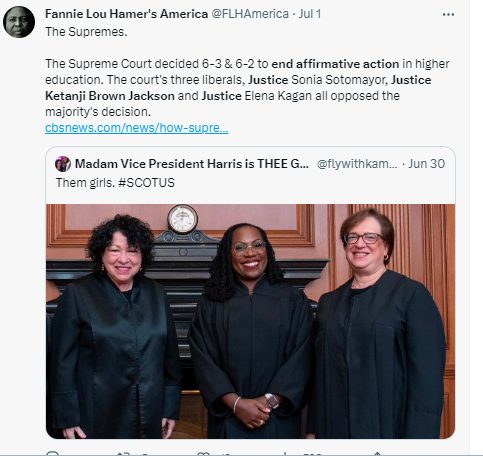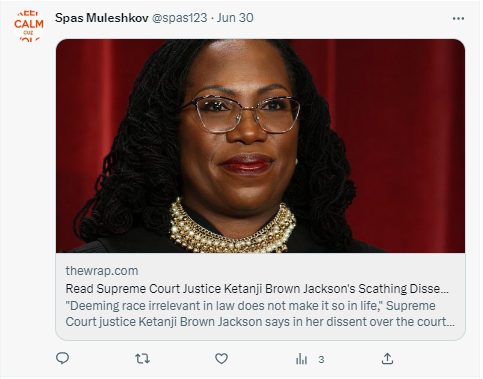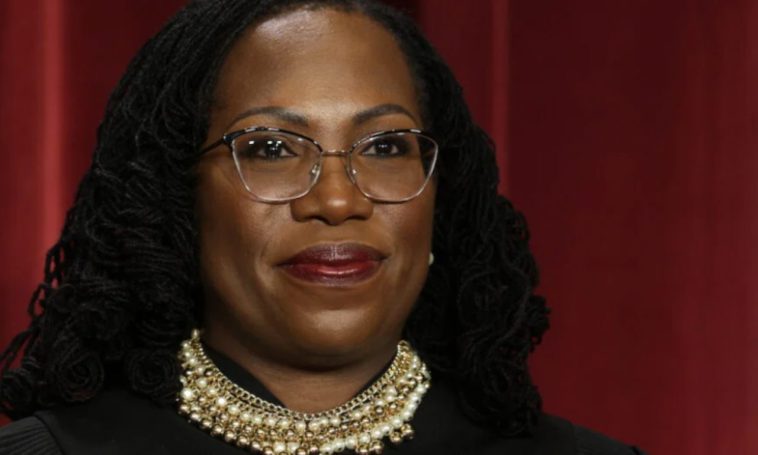In a significant decision, the Supreme Court of the United States (SCOTUS) recently ruled to end affirmative action, a policy aimed at promoting equal opportunities for historically marginalized groups. However, Justice Ketanji Brown Jackson, one of the dissenting voices in this ruling, has released her full dissent, highlighting her concerns about the consequences of eliminating affirmative action.

In her dissent, Justice Ketanji Brown Jackson argues, “Affirmative action has been a crucial tool in addressing historical disadvantages faced by marginalized communities and fostering diversity in educational institutions and workplaces. Ending this policy undermines progress and perpetuates systemic inequality.”
Justice Jackson further emphasizes the importance of considering the broader societal impact, stating, “Affirmative action is not about granting undeserved advantages; it is about creating a level playing field and correcting systemic imbalances. We must acknowledge that the effects of past discrimination persist, and affirmative action is an essential tool in remedying these injustices.”
Her dissent echoes the concerns of many who believe that ending affirmative action will hinder progress towards a more inclusive society. Critics argue that without affirmative action, underrepresented groups may face even greater barriers in accessing education and employment opportunities.

The release of Justice Ketanji Brown Jackson’s dissent has sparked discussions on social media, with many individuals expressing their support and using hashtags such as #AffirmativeActionMatters and #EqualOpportunities to advocate for the continuation of the policy. Supporters argue that affirmative action is necessary to address historical injustices and ensure equal access to opportunities for marginalized communities.

As the debate surrounding affirmative action continues, Justice Jackson’s dissent serves as a reminder of the importance of considering the long-term implications of such decisions on marginalized groups. It calls for a nuanced understanding of the ongoing need to address systemic inequalities and promote diversity and inclusivity.
While the SCOTUS ruling marks a significant shift in the legal landscape, the dissenting voices, like that of Justice Ketanji Brown Jackson, underscore the ongoing challenges and the need for continued efforts to promote equal opportunities for all.



